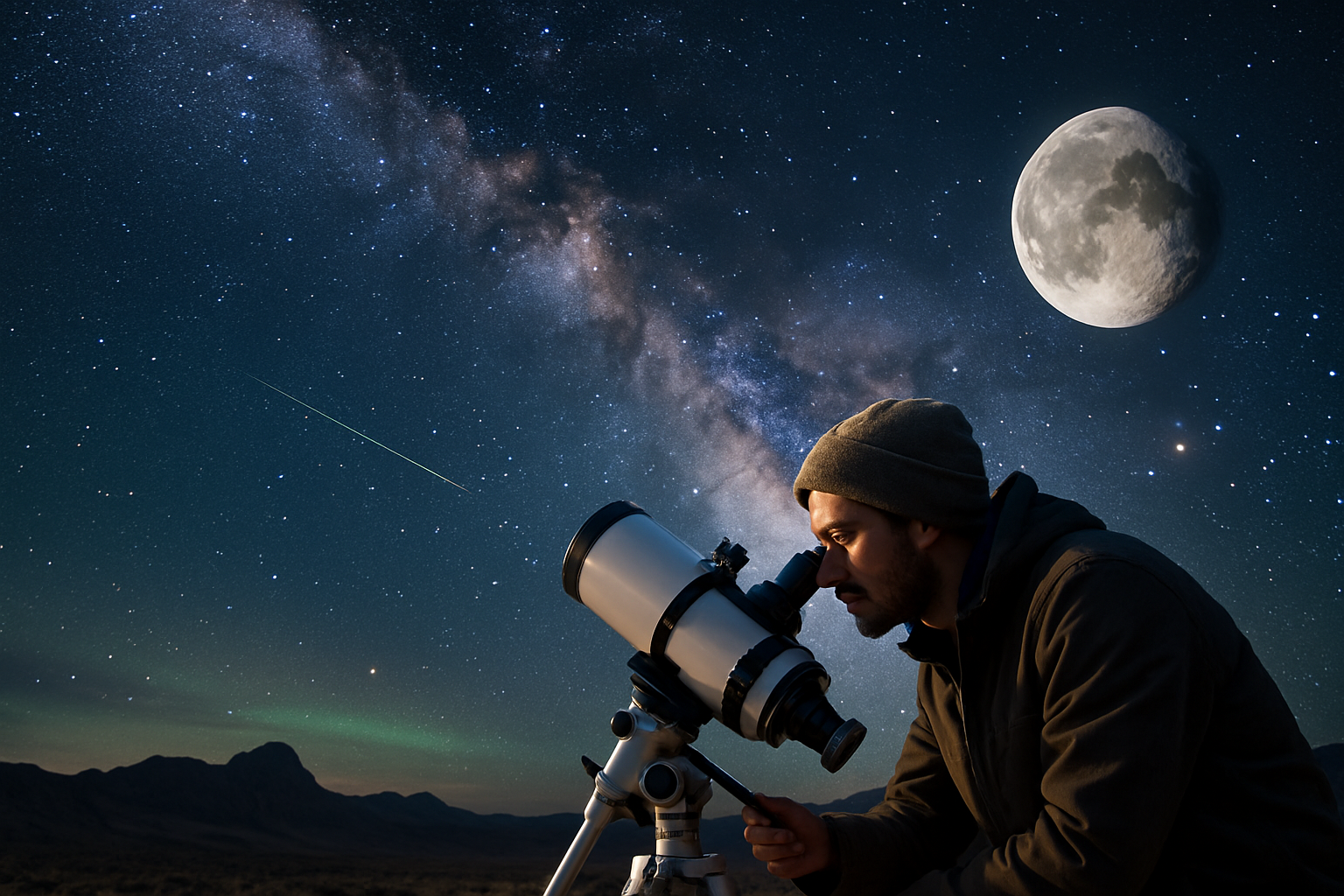Navigating the Rise of Astrotourism: Stargazing Adventures for Modern Travelers
The night sky has long captivated human imagination, but a new travel trend is taking our celestial fascination to new heights. Astrotourism, the practice of traveling to destinations specifically for stargazing and astronomical experiences, is rapidly gaining popularity among adventure seekers and astronomy enthusiasts alike. This burgeoning niche combines the thrill of exploration with the awe-inspiring beauty of the cosmos, offering travelers a unique perspective on our place in the universe.

Dark Sky Destinations: Where to Find the Best Stargazing
The International Dark-Sky Association (IDA) has been instrumental in promoting astrotourism by certifying locations around the world as Dark Sky Places. These areas are recognized for their exceptional quality of starry nights and commitment to protecting the nocturnal environment. Some of the most popular dark sky destinations include:
-
Atacama Desert, Chile: Known for its exceptionally clear skies and high-altitude observatories
-
NamibRand Nature Reserve, Namibia: Africa’s first International Dark Sky Reserve
-
Aoraki Mackenzie International Dark Sky Reserve, New Zealand: Home to the world’s largest dark sky reserve
-
Natural Bridges National Monument, Utah, USA: The first IDA-certified Dark Sky Park
The Rise of Astro-Lodges and Observatories
To cater to the growing demand for astronomical experiences, a new breed of accommodations has emerged. Astro-lodges and observatories offer guests the opportunity to combine luxury stays with world-class stargazing facilities. These specialized properties often feature:
-
Rooftop observatories with high-powered telescopes
-
Astronomy-themed rooms and decor
-
Expert-led stargazing tours and workshops
-
Astrophotography equipment rentals
Some notable examples include the Elqui Domos in Chile, which offers geodesic dome accommodations with retractable roofs, and the Anantara Kihavah Maldives Villas, boasting the first overwater observatory in the Maldives.
The Impact of Astrotourism on Local Communities
Astrotourism has the potential to bring significant economic benefits to remote areas that may have limited tourism opportunities. By attracting visitors during nighttime hours, it can extend the tourism season and create new job opportunities in astronomy education and tour guiding. However, it’s crucial to balance tourism development with the preservation of dark skies and local ecosystems.
Many communities are embracing astrotourism as a sustainable alternative to more invasive forms of tourism. For example, the town of Westcliffe, Colorado, has transformed itself into a dark sky destination by implementing strict lighting ordinances and hosting an annual Dark Skies Festival, which has revitalized the local economy.
Celestial Travel Tips for Aspiring Astrotourists
-
Plan your trip around the lunar cycle; new moon periods offer the darkest skies
-
Bring appropriate clothing for nighttime viewing, including warm layers
-
Invest in a red light headlamp to preserve night vision
-
Allow at least 20 minutes for your eyes to fully adjust to the darkness
-
Consider downloading stargazing apps like Stellarium or Sky Map for easy constellation identification
-
Book accommodations that offer dark sky-friendly lighting and stargazing amenities
The Future of Astrotourism: Beyond Earth’s Atmosphere
As space technology advances, the future of astrotourism looks set to extend beyond our planet. Companies like SpaceX and Blue Origin are developing plans for commercial space travel, potentially opening up new frontiers for astronomical tourism. While space tourism remains a distant dream for most, the growing interest in astrotourism on Earth is paving the way for a new era of cosmic exploration and appreciation.
Astrotourism offers a unique blend of science, adventure, and wonder that resonates with travelers seeking meaningful and transformative experiences. As our understanding of the universe expands, so too does our desire to witness its majesty firsthand. Whether gazing at the Milky Way from a remote desert or attending a star party in a dark sky community, astrotourism provides a powerful reminder of our place in the cosmos and the importance of preserving our view of the night sky for future generations.






